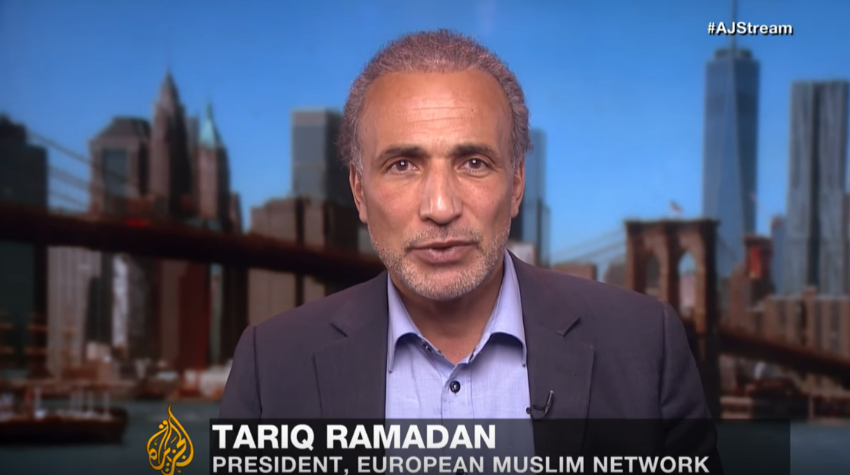Reuters
By Christine Kearney
Friday, June 23, 2006; 6:16 PM
NEW YORK (Reuters) – A federal judge criticized the U.S. government on Friday for holding up a visa application from one of Europe’s best-known Muslim intellectuals and ruled it must make a decision in the long-running case within three months.
U.S. District Judge Paul Crotty granted a request by the American Civil Liberties Union to force a decision on the visa request from renowned Swiss theologian Tariq Ramadan, who has been barred from U.S. entry since 2004 and has waited more than nine months for a response to his latest application.
“The government has failed to adjudicate Ramadan’s pending B-visa application within a reasonable period of time,” Crotty said.
The judge noted that Ramadan had spoken out against terrorism and radical Islamists and that the British government had even enlisted him as an expert on how to combat terrorism.
Crotty called the government’s explanations on why it had delayed a decision on Ramadan’s latest application “less than convincing” and mocked its claims that Ramadan had not been excluded entry over concerns he espoused terrorism.
“Perhaps the delay is caused by the government’s hope of ‘possible future statements by Mr. Ramadan’ that might justify exclusion,” said the judge.
“But in waiting, the government does a disservice not only to Ramadan, but also to the visa application process and to the plaintiff’s First Amendment rights,” he added.
If the government had “a legitimate and bona fide reason for excluding Ramadan” it should act on his pending visa application, Crotty said.
Heather Tasker, a spokeswoman for the U.S. Attorney’s Office, said the government was reviewing the decision.
The ACLU had filed suit against Homeland Security Secretary Michael Chertoff and Secretary of State Condoleezza Rice in January for denying visas to foreign scholars, including Ramadan. The lawsuit seeks to overturn as unconstitutional part of the USA Patriot Act that bars anyone endorsing terrorism.
Ramadan teaches at Oxford University and has published more than 20 books and 700 articles on Islam. He has condemned Islamic violence but some critics have called him an extremist despite his public pronouncements.
Ramadan is the grandson of Hasan al-Banna, one of the most important Islamist figures of the 20th century. In 1928, al-Banna founded the Muslim Brotherhood, which opposed the ascendancy of secular and Western ideas in the Middle East.
His visa has been revoked three times since August 2004, after he was offered a teaching post at the University of Notre Dame in Indiana. He has also been forced to cancel speaking engagements.
ACLU lawyer Jameel Jaffer said the decision “rejected the government’s early contention that professor Ramadan endorsed terrorism” and showed “the government can’t use the immigration laws as a means of silencing its political critics.”
Reuters



![PALEXPO : Democratic Engagement & Justice for Palestinians [08/07/2017]](https://tariqramadan.com/english/wp-content/uploads/sites/9/2017/07/Palexpo.png)
![Bristol Festival of Ideas : Conversation with Julian Baggini [24/05/2017]](https://tariqramadan.com/english/wp-content/uploads/sites/9/2017/06/bristol.png)
![Interview on BBC Radio Ulster [06/06/2017]](https://tariqramadan.com/english/wp-content/uploads/sites/9/2017/06/p03nnqlv.jpg)
![Interview on BBC 4 : What do the London attacks have to do with Islam? What is the Muslims’ responsibility?[06/06/2017]](https://tariqramadan.com/english/wp-content/uploads/sites/9/2017/06/bbc.jpg)

